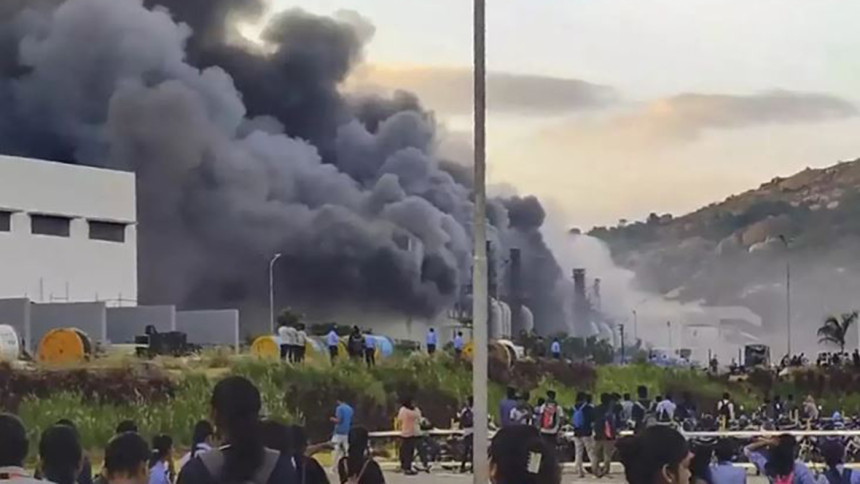Apple May Face Increased Dependence on China Following Tata Plant Fire Incident

Apple Faces Potential Supply Chain Disruptions After Tata Plant Fire in India
A recent fire at Tata Group’s iPhone component plant in southern India may significantly affect Apple’s supply chain, potentially leading to production slowdowns ahead of the critical festive season sales period. The fire, which broke out over the weekend, has caused extensive damage to the facility, forcing an indefinite production halt. As a result, Apple may be compelled to source essential iPhone components from China or other suppliers to meet the demand spike anticipated during the holiday season. This situation could expose the tech giant to increased reliance on China, a dependence it has been trying to reduce.
The Tata Group plant in Hosur, Tamil Nadu, is the only facility in India supplying iPhone back panels and several other components. These parts are critical for Foxconn, Apple’s primary contract manufacturer in India, as well as for Tata’s own iPhone assembly operations at another facility. The fire has interrupted this supply chain at a crucial moment, as Apple ramps up production to meet the expected surge in demand for iPhone 14 and iPhone 15 models in India during the festive season, which runs from late October to early November.
Industry analysts are already predicting a supply shortfall. Counterpoint Research, a Hong Kong-based market analysis firm, has estimated that Apple could sell around 1.5 million units of its iPhone 14 and 15 models during the Indian festive season. However, due to the fire, Apple may struggle to fulfill as much as 15% of that demand. This shortage could result in a scramble for parts, with Apple likely turning to Chinese suppliers to fill the gap and maintain production levels.
This fire comes at a particularly challenging time for Apple, which has been attempting to diversify its manufacturing base outside of China. Over the past few years, Apple has made significant efforts to shift some of its production to India, part of a broader strategy to reduce its dependence on China amid geopolitical tensions and supply chain vulnerabilities exposed during the COVID-19 pandemic. The Tata plant fire, however, may force Apple to revert to sourcing more components from China, at least temporarily, which could delay its efforts to establish a more resilient, geographically diversified supply chain.
The incident also highlights the growing importance of India as a manufacturing hub for Apple. India has been a key focus for Apple’s long-term plans, not only as a production center but also as an important consumer market. The company has been steadily expanding its local manufacturing capacity, with Tata Group playing a crucial role in this effort. If the fire leads to prolonged disruptions, it could have a ripple effect on both Apple’s supply chain strategy and its sales momentum in India.
As Apple assesses the damage and formulates a recovery plan, industry experts are watching closely to see how quickly Tata’s operations can resume and whether alternative suppliers will be able to fill the gap. The situation underscores the fragility of global supply chains, particularly for high-tech products like smartphones, which rely on a delicate balance of component sourcing and manufacturing across multiple countries. For Apple, this fire serves as a reminder of the risks inherent in its ongoing efforts to shift production away from China while maintaining high production volumes.




















